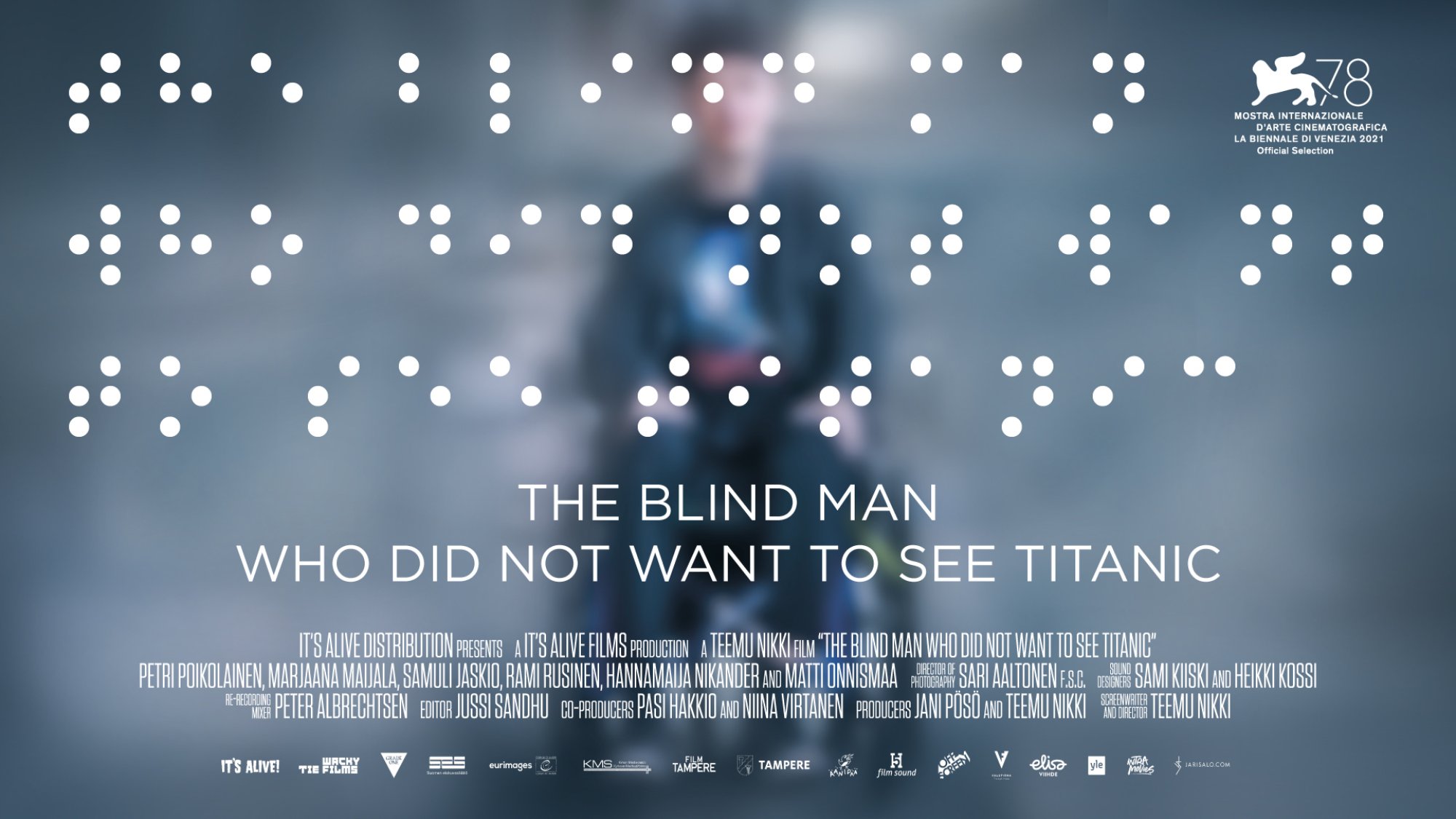‘The Blind Man Who Did Not Want to See Titanic’ Movie Review [SXSW 2022]: Petri Poikolainen Carries a Tense, Straightforward Premise
The Blind Man Who Did Not Want to See Titanic builds on a simple, yet effective plot to deliver both its drama and its humor. Writer/director Teemu Nikki puts emphasis on a visual aesthetic and Petri Poikolainen’s impactful central performance for the festival title. However, The Blind Man Who Did Not Want to See Titanic is the type of film that doesn’t necessarily require any fancy bells and whistles beyond that.
‘The Blind Man Who Did Not Want to See Titanic’ is a journey for love

The Blind Man Who Did Not Want to See Titanic follows Jaakko (Poikolainen), who is visually impaired and paralyzed from the chest down. He lives his life according to a routine and internalizes the negative effects of his rare moments of human contact. However, Jaakko holds romantic feelings for Sirpa (Marjaana Maijala), who deals with her own declining health. They find solace in regularly speaking on the phone.
Jaakko and Sirpa never met face-to-face. He makes the difficult decision to travel to another city to visit her in person. However, nobody is willing to take him there. Jaakko will need to rely on the kindness of strangers to make it to his destination. He feels that this could be his only chance to find happiness. What could possibly go wrong?
Writer/director Teemu Nikki questions humanity’s worth
The Blind Man Who Did Not Want to See Titanic embraces a deep love for the art of cinema. Jaakko watched John Carpenter films soon before he lost his sight. However, that didn’t diminish his admiration for his filmmaking. He makes frequent movie references, calling Sirpa Alien’s Ripley and his assistant Misery’s Annie Wilkes. Nikki’s screenplay fully embraces its passion for cinema in multiple forms.
However, Jaakko’s love for film doesn’t extend to James Cameron’s Titanic. Nikki’s film title is long, albeit accurate to the character. The specific film holds symbolism and meaning for Jaakko and Sirpa’s health journey. The Blind Man Who Did Not Want to See Titanic tackles the themes of time and freedom, as two genuine characters dream of love and life experiences together.
Nikki’s screenplay explores discrimination and assumptions surrounding Jaakko and Sirpa’s health. Many of Jaakko’s interactions with others exhaust him, but he opens up in various ways when he speaks with Sirpa on the phone. However, The Blind Man Who Did Not Want to See Titanic strongly outlines both the kindness of humanity and the lack thereof.
‘The Blind Man Who Did Not Want to See Titanic’ highlights Petri Poikolainen’s performance

Nikki’s visual style generates a claustrophobic atmosphere. The film is entirely composed of closeups, as there are no establishing shots. Jaakko is often unaware of his surroundings, which extends to the audience. This elevates the movie’s sense of tension, although it also limits the film’s storytelling by creating a sense of visual and narrative claustrophobia.
Poikolainen’s stellar lead performance elevates The Blind Man Who Did Not Want to See Titanic in every way. The audience doesn’t see other characters’ faces, keeping the actor front-and-center the entire time. This puts a lot of weight on Poikolainen to truly breathe life into this story. He’s sympathetic and thoroughly captivating.
The Blind Man Who Did Not Want to See Titanic introduces a straightforward concept that never tries to be anything it isn’t. Nikki’s claustrophobic direction works as a tonal strength but a narrative weakness. Sometimes an effective, yet concise premise coupled with an impactful performance fits the bill. The Blind Man Who Did Not Want to See Titanic is crisp and taut storytelling.


